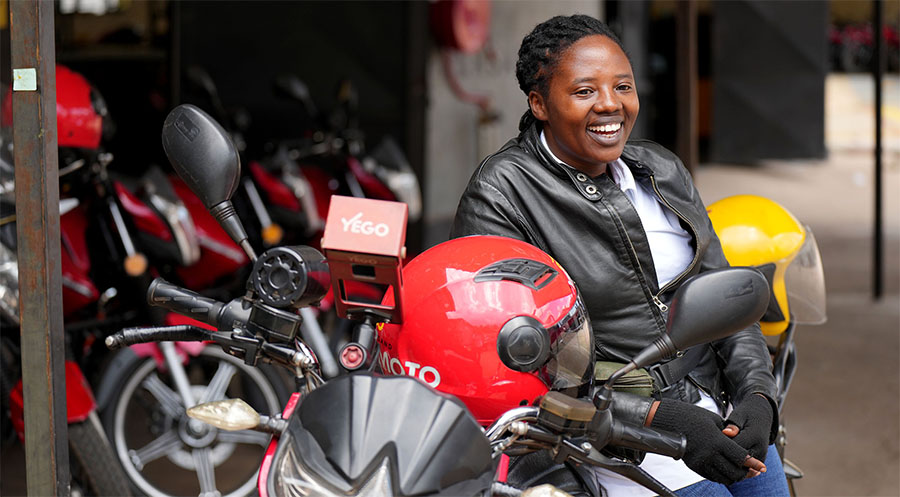Photo Credit: Getty Images
Rwanda is racing toward a cleaner future with a bold ambition: to convert all 100,000 of its motorbikes into electric models. In a continent where electric mobility faces major hurdles—chief among them unreliable electricity distribution—Rwanda's plan is daring, but not without promise. The country's government, backed by a surge of innovative startups, is trying to leapfrog traditional development paths and create a new model for e-mobility in Africa.
Startups like Ampersand, Spiro, eWaka and Rwanda Electric Motors are leading the charge by leasing and selling electric motorcycles—locally known as "motars"—through low-cost, accessible plans. These schemes often involve battery rentals, reducing upfront costs for riders and making e-bikes more affordable than their gas-powered counterparts. Riders not only enjoy lower operational costs, but Ampersand reports that each of its 2,750 bikes currently in circulation offsets about 7,000 tonnes of emissions annually.
The benefits extend beyond emissions. Each electric bike is estimated to cut around 2.6 tonnes of CO₂ per year, a meaningful step toward Rwanda's goal of reducing emissions by 38% by 2030. But the promise of these bikes rests on solving a deeper issue: powering them. Rwanda's electricity grid, while expanding, remains fragile. Over half the country now has access to electricity, yet outages remain frequent and problematic for commercial users and households alike. Charging e-bikes—often needed three to five times a day—could strain an already overloaded system.
To counter this, startups are turning to solar-powered solutions. Ampersand is installing solar panels in rural battery-swap stations and partnering with oil giant TotalEnergies to tap into their solar-powered facilities. Used e-bike batteries are also being repurposed into mini-grid systems that can power entire rural communities, thanks to collaborations with companies like SLS Energy.
The innovation isn't limited to Rwanda. In Ghana, companies like Kofa are implementing solar-powered swap stations. In Kenya, Ampersand's off-grid setups are already operational. The future of this revolution, however, hinges on storage. As experts point out, the sun doesn't shine at night. Without efficient energy storage, renewable systems remain vulnerable.
But Rwanda is proving that with vision, policy support and technological ingenuity, green mobility is possible—even in regions long held back by energy limitations. If successful, the country may not only meet its climate goals but inspire a new wave of clean tech across Africa.


